Research
International and interdisciplinary research activity of ECLT is organized in Research Units which currently includes:
- Artificial Intelligence
- Bioinspired Design
- Science of Complexity
- Arts and Complexity
- Neuroscience
- Living Technology
- Artificial Life
- Solutions
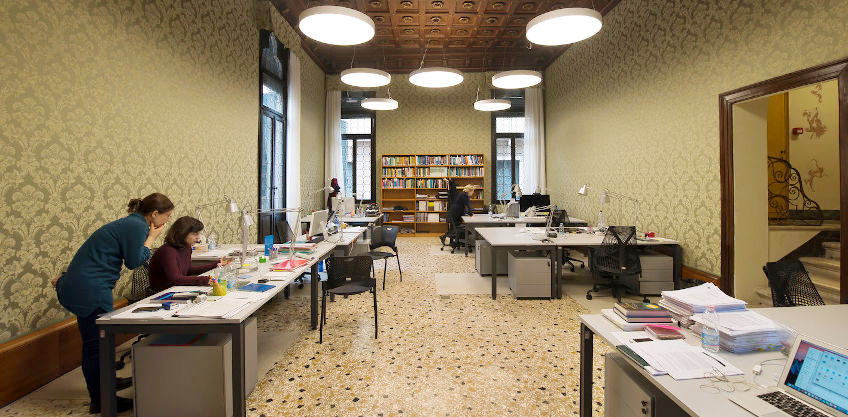
Work with us
ECLT offers a large variety of opportunities for research activities through calls for fellowship applications and grants. Please visit this section to stay up-to-date on open calls.
Research units
Artificial intelligence

Our goal is to study and develop computer algorithms that exhibit human-like cognitive abilities.
Our research focuses on the following areas:
- Machine learning
- Computer vision
- Pattern recognition
- Socio-ethical implications of AI
Bioinspired design
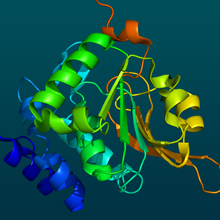
Our goal is to study the complexity of living systems using a holist approach bridging the borders between Physics, Chemistry, Biology and Medicine. To this aim, we combine computational and experimental tools to find molecular level solutions to a broad range of issues related to medicine, biotechnology, environment and energy.
Arts and complexity

For a long time, art and science were viewed as distant domains that were only loosely connected, but we’re now witnessing more interaction between the two. This has led to an increased awareness of how art and science are indeed two different but strongly coupled aspects of human creativity, both driving innovation as art influences science and technology, and as science and technology in turn inspire art. This Research Unit will start from these premises to face research challenges at the intersection of art, science, and technology.
Science of complexity
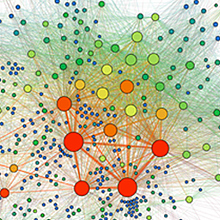
Any system in which a large number of elements interact, adapt and evolve to give rise to new meso- and macro-level structures can be described as complex. Learning about the organization and the dynamic of such systems raise challenging problems with respect to data - how to collect them, how to interpret them, how to use them to build models that can help to predict system dynamics. The RU is devoted to design new methodologies for understanding the fundamental principles of complex systems at a variety of scales, from molecular biology to human societies. Research fields: Adaptive Experimental Design and Clinical Trials, Evolutionary approaches for Multi-Objective Optimization, Intelligent Systems for Data Analysis, Machine Learning, Bayesian Network and Graphs Analysis , Predictive High Dimensional Models, Computational medicine, Econometrics.
Neuroscience
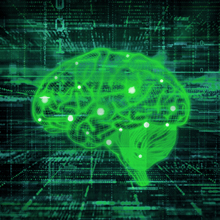
The mission of this research unit is to promote the study of the human mind and its social and cultural complexities across major disciplines including neuropsychology, comparative cognitive neuroscience, affective neuroscience and computer science work towards an integrative view of sensory modalities and research methodologies.
Living technology
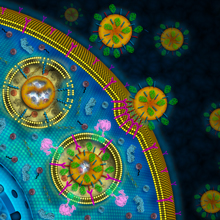
The main focus of LT research unit is to develop and explore living technologies, which are technologies that are characterized by robustness, autonomy, energy efficiency, sustainability, intelligence, learning, self-repair, adaptation, self-replication and evolution, all properties most current technologies lack, but living systems possess.
Artificial life
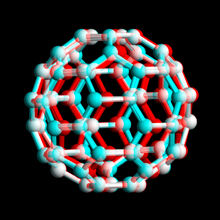
The goal of this research unit is to study and synthesize living and life-like processes, both life-as-we-know-it and life-as-it-could-be regardless of substrate. Substrates can be wet carbon-based chemistry (wet Alife), software-based (soft Alife), robotics-based (hard Alife), or mixtures of these.
Note that living and life-like processes can exist at multiple levels and thus include for example ecological systems and human organizations.
Solutions

The aim is to study and develop solutions to a variety of complex societal challenges caused by the interactions between technological advancements (‘physical technologies’) on one hand and cultural structures and institutions (‘social technologies’) on the other hand. Such challenges include the erosion of the collective perception of objective facts, increasing inequality, climate change, and loss of biodiversity. There is a sense of urgency to understand the root causes of these disturbing trends and to offer feasible alternative visions of cultural and technological change that can take us in a better direction.
Research projects
StEPPFoS - Strengthening Evidence-Based Policy Practice for Sustainable Food Systems under the EU-AU Partnership
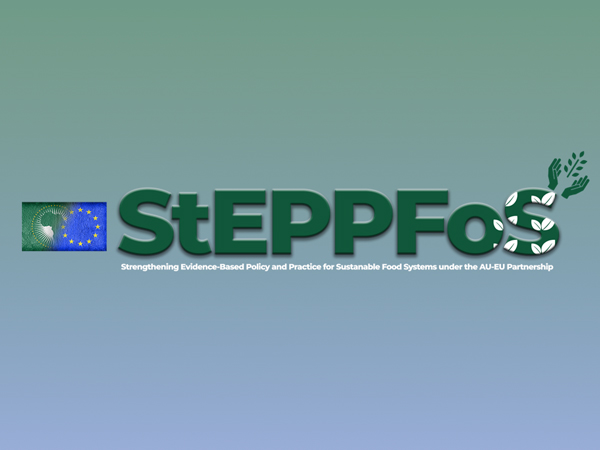
Project Title: StEPPFoS - Strengthening Evidence-Based Policy Practice for Sustainable Food Systems under the EU-AU Partnership
Start Date-End Date: 01/01/2024 - 31/12/2027
Project duration: 48 months
ECLT project leader: Amsalu Woldie Yalew
Coordinator: Forum for Agricultural Research in Africa (FARA), Ghana
Funding Scheme: Call HORIZON-CL6-2023-FARM2FORK-01
Abstract
Food and nutrition security and sustainable agriculture (FNSSA) are among the critical development concerns in Africa. FNSSA is among the policy priorities in many African countries and at the center of the AU/EU international development agenda. FNSSA was the priority R&I area in the AU-EU High Level Policy Dialogue on Science, Technology, and Innovation. This was further substantiated by the establishment of the Pan-African Network for Economic Analysis of Policies (PANAP). StEPPFoS thus, aims contribute to theFNSSA 10-year road map and the global transition towards sustainable food systems through the implementation of activities that link PANAP to the FNSSA partnership. Specific objectives are to improved capacities of stakeholders, to enhanced science-policy interface, to improve strategies that promote scientific support within policy development, to expand and strengthen the PANAP Network. StEPPFoS will be implemented through its 8 work-packages over a period of 48 months. Capacity building,stakeholder engagements, participatory monitoring, evaluation, and learning are the main methods to be used to deliver StEPPFoS objectives whiles adhering to open science principles and effective data management practices. The consortium is well positioned to deliver these objectives as it draws on the expertise and experiences of its partners drawn from both Europe and Africa credible academic, research, and policy institutions.
LEAP unLocking carEer potentiAl with comPlex systems, data analytics and machine learning
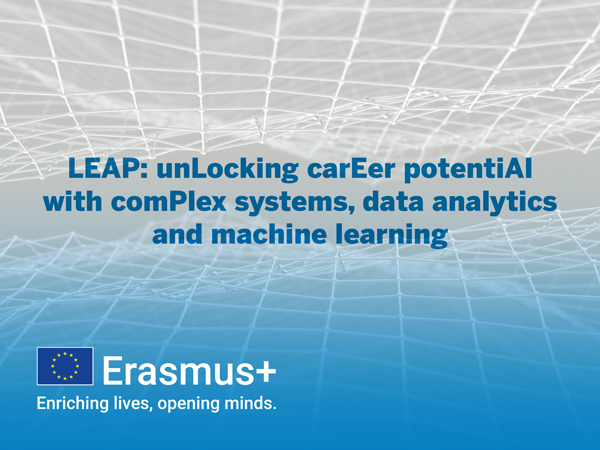
Project Title: LEAP: unLocking carEer potentiAl with comPlex systems,data analytics and machine learning
ECLT project leader: Prof. Guido Caldarelli
Coordinator: Aristotle University of Thessaloniki
Funding Scheme: Erasmus+ KA220-HED - Cooperation partnerships in higher education
Abstract
LEAP aims to equip learners with in-demand ICT skills, bridging the gap between industry and academia by offering a flexible and inclusive learning approach. The project aims to develop and offer learning content that is efficient, inclusive and pertinent to the current state of the ICT labour market. The curriculum focuses on complex systems, statistics, data analytics and machine learning, with an experiential pedagogical approach that fosters transferable and forward-looking skills.
LEAP aims at bridging the gap between industry and academia by offering flexible and inclusive outcomes-oriented and student-oriented learning, integrating Complex Systems, Data Analytics, Statistics, and Machine Learning. The planned activities follow the ADDIE model, including needs analysis, pedagogy research, course design, and evaluation. Dissemination activities enhance project impact.
NODES European Narratives Observatory to fight Disinformation post COVID-19

Project Title: Narratives Observatory combatting Disinformation in Europe Systemically - NODES
Start Date-End Date: 01/02/2023 - 30/11/2024
ECLT project leaders: Prof. Guido Caldarelli
Coordinator: Re-Imagine Europa
Funding Scheme: CNECT/2022/5612608 - European Narratives Observatory to fight Disinformation post COVID-19
Abstract
The Narratives Observatory to combat Disinformation in Europe Systemically (NODES) has been designed to deploy the power of narratives in the fight against disinformation within the European public sphere. The objective of NODES is to develop and critically assess a novel large-scale mechanism to analyse and monitor the origin, development and spread of narratives classified as “disinformation”, to effectively provide quantitative and qualitative data on the narrative approach to disinformation, including the implementation of the NODES Narrative Methodology, recommendations for future policy action and novel practices for practitioners in the field.
The complexity of the contemporary, multi-issue, multi-lingual, multi-platform and multi-cultural European public sphere will be reflected through the methodology being applied to three different case studies (COVID19, Climate Change and Migration) and four different languages (English, French, Polish and Spanish) in order to be able to analyse the topology of network structures within the public sphere from a narrative perspective.
Bringing together the experience and expertise within the consortium that represent leading actors across the interdisciplinary and intersectoral spectrum of stakeholders involved in the issue, NODES has been designed to be able to be operative from M1 by building on the tools and methodologies already developed by and available to the partners. Thus benefiting from the experience, expertise and know-how developed over decades.
Impact is a key feature of the success of the project as it aims to provide a concrete and systematic contribution to combatting disinformation and strengthening our democracies. Building on the diverse outreach and expertise of the consortium, NODES will draw conclusions, propose measures and develop recommendations for the different audiences addressed by this concern including: Policy-makers, Practitioners, Academia, Journalists/Media, General audience.
Project website: https://nodes.eu/
G@V - GLOBAL AT VENICE: Research and Training for Global Challenge
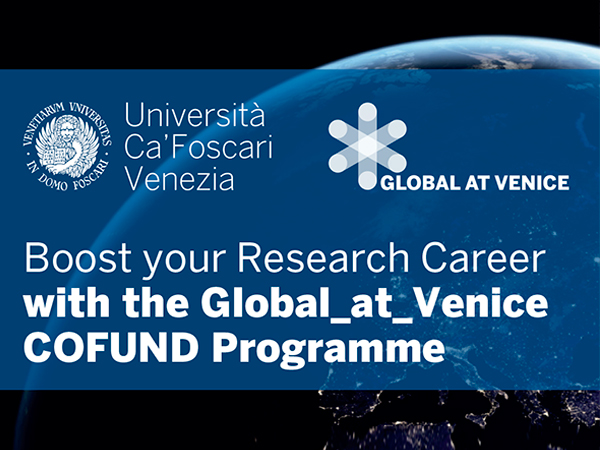
G@V - GLOBAL_AT_VENICE: Research and Training for Global Challenges is a new 60-month fellowship project jointly funded by the European Union and Ca' Foscari University of Venice through the Marie Skłodowska-Curie Action COFUND.
The first call for the “Global at Venice - Research and Training for Global Challenges” Cofund Fellowship Programme is now open!
It will award 8 Fellowships each lasting 24 months.
The deadline to submit applications is 5pm (CET) June 30 2021.
The programme is supported by the University’s partners, including ECLT, non-academic networks of spin-offs, and small and medium enterprises, where Fellows will have the opportunity to complete secondments.
We kindly ask you to help us to promote and publicize this call as much as possible!
Elegibility criteria
- Be in possession of a PhD degree awarded not later than 8 years prior to this call deadline.
- Have at least one major publication without their PhD supervisor (either accepted, in press or published) at the time of deadline.
- Have not resided or carried out their main activity in Italy for longer than 12 months during the 3 years prior to the call deadline, in compliance with the MSCA mobility rule.
Applicants are requested to submit their research proposal in one of the six interdisciplinary Research for Global Challenges Institutes (RGCI) that will support them with their individual research and training needs. Applicants are required to choose a potential supervisor whose role is to integrate the research within the Research for Global Challenge Institute.
The guidelines for applicants are available on the following website: Call and Useful info
European Learning and Intelligent Systems Excellence - ELISE

Project Title: European Learning and Intelligent Systems Excellence - ELISE
Start Date-End Date: 01/09/2020 - 31/08/2024
ECLT project leaders: Prof. Marcello Pelillo
Coordinator: AALTO KORKEAKOULUSAATIO SR (AALTO)
Funding Scheme: Call Identifier: H2020-ICT-2019-3
Topic: ICT-48-2020 - Towards a vibrant European network of AI excellence centres
Consortium: 23 institutions
Abstract
ELISE aims to make Europe competitive in AI through a network of excellence. The best European researchers in machine learning and AI have worked together to attract talent, to foster research through collaboration, and to inspire and be inspired by industry and society. While ELISE starts from machine learning as the current most prominent method of AI, the network invites in all ways of reasoning, considering all types of data, applicable for almost all sectors of science and industry. While being aware of data safety and security, and while striving to explainable and trustworthy outcomes we aim to create a force to Europe.
ELISE will run a PhD student and a postdoc programme to attract and to educate world-class talents to Europe. It will operate a Fellows programme for groundbreaking research and high-profile workshops to develop AI methods applications further. Industry involvement is guaranteed by the many connections members of ELISE have with industry, on average one for every member and one start-up for every second member of ELISE.ELISE will demonstrate a fraction of their research in use cases to be implemented in AI4EU and the SME’s of Europe. Additional impact will be created to SME’s through open calls. The current practice of ELISE members of spin-off research in SME’s once a break-through is achieved will be stimulated through incubators.The current practice of participating in dissemination and debate that many members of ELISE are used to will be continued to develop a mature acceptance of AI throughout Europe for the benefit of all and in cooperation with all.
ELISE is built on 105 organisations in total, in which the 202 core contributors have actively indicated they will help build and profit from the networks of PhD-students and scholars.
ELISE includes 60 ERC grants of their active supporters. By their citation and other accepted scores of scientific quality, ELISE is the network that combines in Europe excellence in AI.
UNIVE-ECLT, as Linked-Third Party of the Consorzio Interuniversitario Nazionale per l’Informatica (CINI), will contribute to the realization of the following deliverables:
- D6.2: ELISE challenges accessible and showcased on the AI4EU platform (M36)
- D6.4: Booklet and media content on ELISE dissemination activities to the large public and industries (M24)
- D6.5: Booklet and media content on ELISE dissemination activities to the large public and industries (M36) as part of the WP6 "Dissemination and communication".
Project website: www.elise-ai.eu
DC-ren
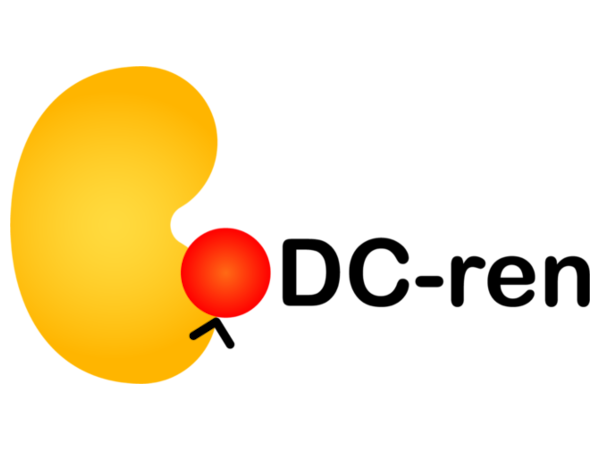
Project Title: Drug combinations for rewriting trajectories of renal pathologies in type II diabetes - DC-ren
Start Date-End Date: 01/01/2020 - 31/12/2024
ECLT project leader: Prof. Irene Poli
Coordinator: Medizinische Universität Innsbruck
Funding Scheme: H2020-SC1-BHC-2018-2020, Topic SC1-BHC-02-2019
Abstract
Diabetic Kidney Disease (DKD) is highly prevalent in type 2 diabetes, with major impact on patients and healthcare systems. The complex disorder, further modulated by cardiovascular comorbidities, presents as an accumulation of risk factors, which we treat with drug combinations. While the overall benefit of this approach is evident on a cohort level, individual patients show remarkable heterogeneity in drug response, and lack of guidance on personalized medication results in suboptimal control of the disorder. For resolving variability, we propose a new concept for personalization of drug combinations beyond the cohort-centric perspective. We improve patient stratification based on equivalence relations of clinical presentation, disease pathophysiology and drug combinations. The approach is derived from dynamical systems theory, aimed at reducing probabilistic assignment of patient-specific disease evolution and matching drug combinations. The availability of a large European repository holding DKD patients in routine care with diverse drug combinations, complemented by high-throughput screening for improving patient phenotyping, and molecular network modelling of pathology, embedded risk factor combinations and consequence of drug effect allows a systems representation of patient groups. Integrating clinical presentation and molecular architecture in a novel computational framework will establish a decision support software prototype. We will validate this tool for predicting optimized personalized drug combinations in a study using given clinical trial repositories. Demonstration will expand to other available drugs, which in combination with approved drugs promise benefit for groups of DKD patients. With a clear route toward uptake in the clinical setting, and generalization capacity of our approach to other complex disorders we foster next steps in personalization, anticipate major patient benefit, and see novel translation and business opportunities.
Team of research: Michele Braccini, Veronica Distefano, Antonio Magnani, Maria Mannone, Claudio Silvestri, Debora Slanzi.
Budget for ECLT: 781,405.00 €
Project website: dc-ren.eu
REXlearn

Project Title: Reliable and Explainable Adversarial Machine Learning
Start Date-End Date: 29/08/2019-28/08/2023
ECLT project leader: Prof. Marcello Pelillo
Principal Investigator: Prof. Fabio Roli - Università degli Studi di Cagliari
Funding Scheme: Progetti di ricerca di Rilevante Interesse Nazionale - PRIN 2017
Abstract
Machine-learning technologies have become pervasive, and even able to outperform humans on specific tasks. However, it has been shown that they suffer from hallucinations known as adversarial examples, i.e., imperceptible, adversarial perturbations to images, text and audio that fool these systems into perceiving things that are not there. This has severely questioned their suitability for mission-critical applications, including self-driving cars and autonomous vehicles. The defense strategies proposed to overcome this issue have been shown to be ineffective against more sophisticated attacks carefully crafted to bypass them, highlighting the challenging nature of this problem. In this project, we formulate three main challenges that demand for novel learning paradigms, able to take reliable and explainable decisions, to assess and mitigate the security risks associated to such potential misuses of machine learning. This project will pave the way towards the design of reliable and explainable machines that are also useful beyond adversarial settings. We will indeed develop tools and prototypes that can face the challenges posed not only by cybersecurity applications with a clear adversarial nature, but also by recent computer-vision and deep-learning technologies.
Past projects
| ECLT past projects | 728 K |
